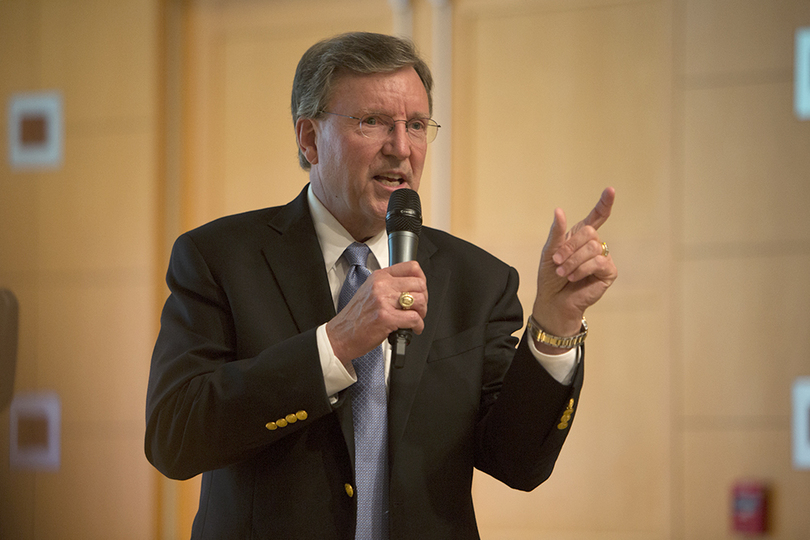Former educator discusses issues with public schools
What Jerry Weast saw during his time in Montgomery County, Md., suggested that something was wrong.
Certain groups of students weren’t doing as well as others. Further, the gap in achievement seemed to fall along racial and economic lines. So for 12 years, he worked to correct it.
Weast was the first lecturer of this year’s Landscape of Urban Education Lecture series in the School of Education.
He discussed his 35-year experience as a school superintendent, speaking specifically about his time with Montgomery County Public Schools in Maryland Tuesday night.
During his career, he saw a gap in academic performance between poor or minority students and wealthier, white students. The 12 years he spent working to close this gap was the focus of his talk.
“In this locality, what I found is that some of the wealthiest people in America and some of the poorest and most diverse people in America, and they were living right next to each other in the same county,” he said.
The scores of poor and minority children were averaged with that of high achievers, Weast said, causing the higher scores to mask other students’ poor performance.
The truth, he said, was there was a “huge gap” related to where a student lived, as well as wealth.
He added that the United States in general has dealt inadequately with race.
“I learned how to deal with race and how we really haven’t done a good job dealing with that in America,” he said. “And I learned there that it was hard to actually consolidate school systems, because race and class were bigger issues than most of us think or will ever want to admit.”
Some students assessed the lecture as interesting and informative, while others thought Weast didn’t clearly answer questions at the end about race and what parents could do about the Syracuse City School District’s dismal academic performance.
Reba Hodge, a teaching and curriculum graduate student in the School of Education, said she liked the idea of having Weast come to Syracuse to speak about leading for equity, but that the lecture lacked in regards in what it means to lead. She said she felt that while he talked about race, he did not address racism.
“You can’t disconnect race and ethnicity and student outcomes without talking about why they’re at different beliefs about the ways students learn and where those come from,” she said. “There’s a root cause to the things we think and I don’t think that he addressed them in the way that was beneficial for me and the audience.”
Yet Dagmo Yusuf, a freshman inclusive elementary and special education major, said she found the lecture to be interesting, specifically regarding Weast’s discussion of race.
Said Yusuf: “I didn’t really know what it was going to be focusing on, and especially because of my race, it’s interesting to hear more information about it and know that people are still concerned about this, and hopefully it’s progress.”
Published on September 4, 2013 at 2:18 am
Contact Ellen: ekmeyers@syr.edu | @ellenkmeyers







